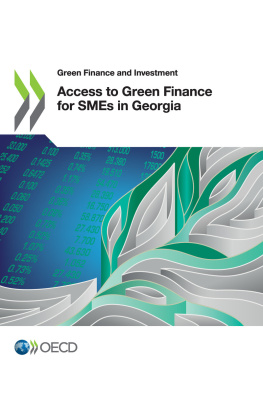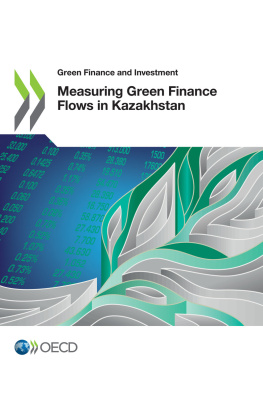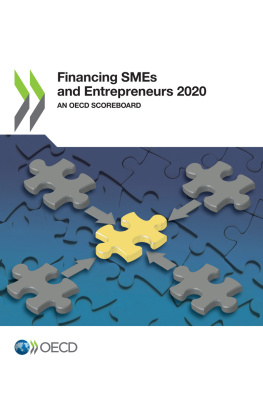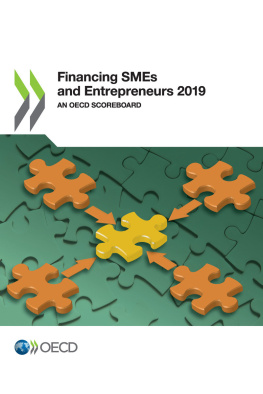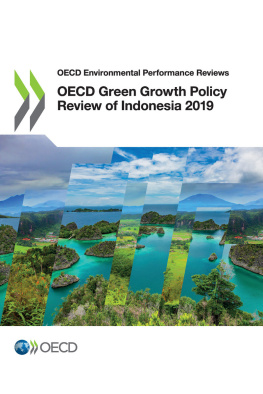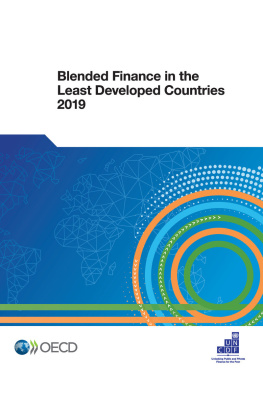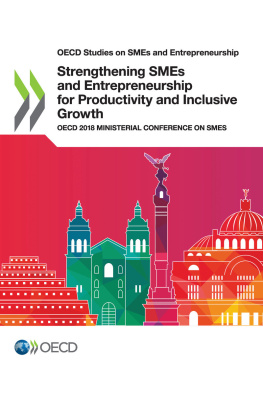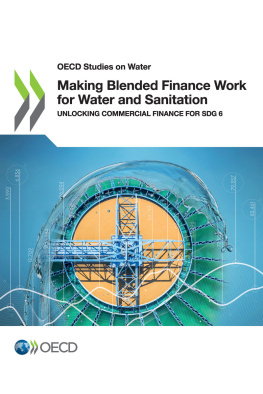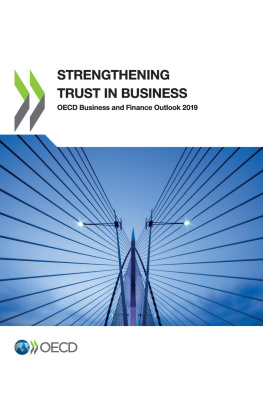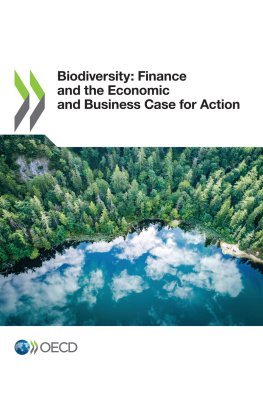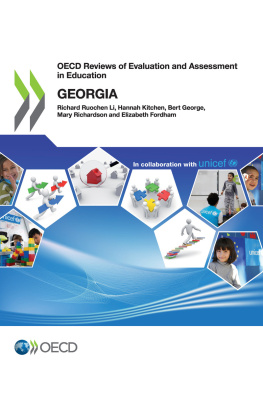OECD - Access to Green Finance for SMEs in Georgia
Here you can read online OECD - Access to Green Finance for SMEs in Georgia full text of the book (entire story) in english for free. Download pdf and epub, get meaning, cover and reviews about this ebook. year: 2019, publisher: OECD Publishing, genre: Romance novel. Description of the work, (preface) as well as reviews are available. Best literature library LitArk.com created for fans of good reading and offers a wide selection of genres:
Romance novel
Science fiction
Adventure
Detective
Science
History
Home and family
Prose
Art
Politics
Computer
Non-fiction
Religion
Business
Children
Humor
Choose a favorite category and find really read worthwhile books. Enjoy immersion in the world of imagination, feel the emotions of the characters or learn something new for yourself, make an fascinating discovery.
- Book:Access to Green Finance for SMEs in Georgia
- Author:
- Publisher:OECD Publishing
- Genre:
- Year:2019
- Rating:4 / 5
- Favourites:Add to favourites
- Your mark:
- 80
- 1
- 2
- 3
- 4
- 5
Access to Green Finance for SMEs in Georgia: summary, description and annotation
We offer to read an annotation, description, summary or preface (depends on what the author of the book "Access to Green Finance for SMEs in Georgia" wrote himself). If you haven't found the necessary information about the book — write in the comments, we will try to find it.
OECD: author's other books
Who wrote Access to Green Finance for SMEs in Georgia? Find out the surname, the name of the author of the book and a list of all author's works by series.
Access to Green Finance for SMEs in Georgia — read online for free the complete book (whole text) full work
Below is the text of the book, divided by pages. System saving the place of the last page read, allows you to conveniently read the book "Access to Green Finance for SMEs in Georgia" online for free, without having to search again every time where you left off. Put a bookmark, and you can go to the page where you finished reading at any time.
Font size:
Interval:
Bookmark:
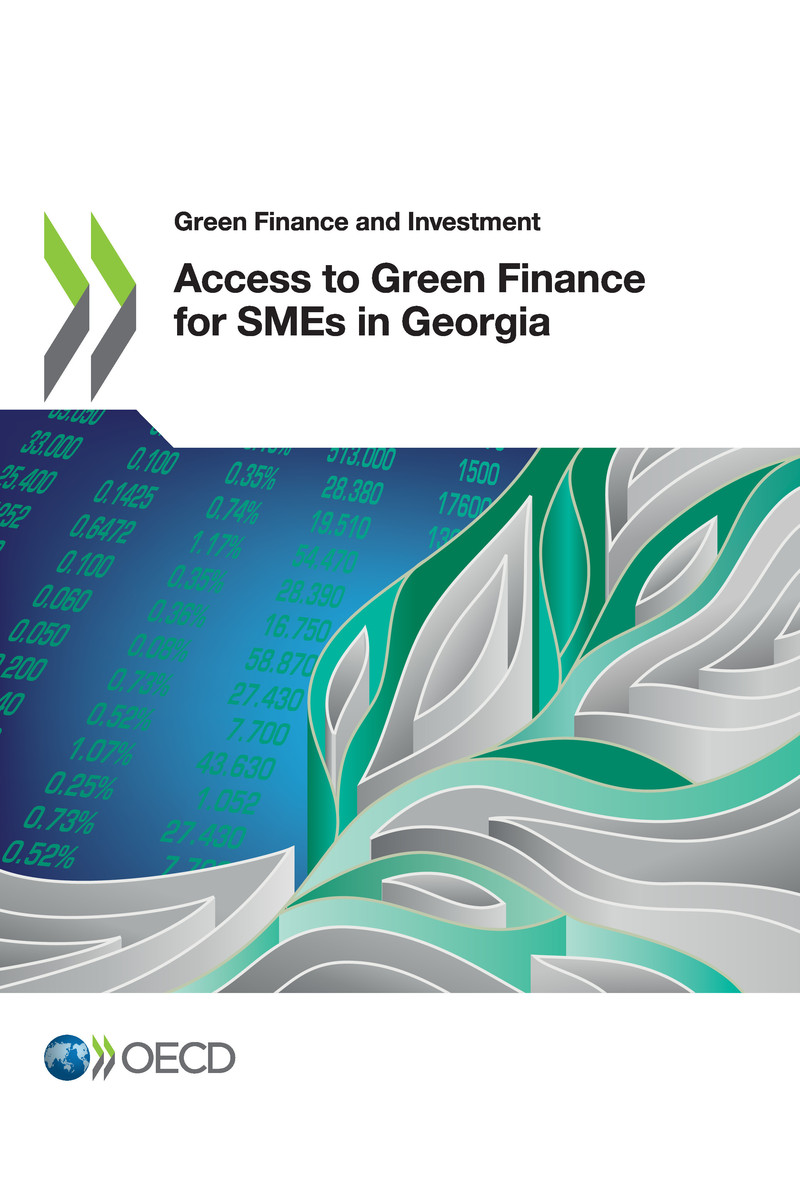
OECD (2019), Access to Green Finance for SMEs in Georgia , Green Finance and Investment, OECD Publishing, Paris, https://doi.org/10.1787/dc98f97b-en .
Small and medium-sized enterprises (SMEs) play an important role in Georgias economy. SMEs provide more than 67% of employment and 61.5% of gross value added. Although the environmental footprint of individual SMEs may be low, their aggregate impact in many respects exceeds that of large businesses. SMEs have a particularly significant environmental impact in such sectors as food processing, minerals extraction and tourism (hotels and restaurants).
Commercial banks play an important role in providing access to green finance, including for SMEs. However, market conditions in the European Union Eastern Partnership (EaP) countries constraint the involvement of commercial banks. Generally, they have only established specific environmental credit lines when supported by international financial institutions (IFIs). Only a small number continue to offer such products once IFI support is withdrawn. Learning from the design and implementation of such credit lines can provide useful insights into how to increase the capacity and willingness of the banking sector to finance green investments to SMEs.
This report reviews the experience of developing environmental credit lines in Georgia and using them to lend to SMEs. It reviews the macroeconomic and political context for green investments in the country. It then analyses in more detail the role and capacity of the banking sector and the policy environment for green investment and broader access to finance for SMEs. Further, the report examines the experience of three banks in Georgia (Bank of Georgia, TBC Bank and ProCredit Bank). Specifically, it assesses barriers to developing a successfully sustainable energy-lending portfolio and to identifying key success factors from the institutional perspective. These banks are well-positioned to take part in this analysis as they are the largest local financial institutions that benefit from IFI-supported environmental credit lines in Georgia.
The report was drafted by Matthew Savage (Oxford Consulting Partners) with inputs by Nelly Petkova (OECD Environment), who also led and managed overall project implementation. The report was reviewed by Krzysztof Michalak, David Simek and Takayoshi Kato (OECD Environment Directorate) and their suggestions are very much appreciated. Many colleagues from Georgia contributed to this analysis and special thanks go to: Davit Advadze and Tsisnami Sabadze (Ministry of Economy and Sustainable Development [MESD]), Ani Vashakmadze (Georgias Innovation and Technology Agency), Tamara Khizanishvili and Keti Bitskinashvili (TBC Bank), Ketevan Mumladze and Natia Kalandarishvili (Bank of Georgia), Ketevan Kekelashvili (ProCredit Bank), Andreas Berkhof (European Investment Bank), Tatiana Chernyavskaya (United Nations Industrial Development Organization), Mikheil Khuchua (GIZ Georgia), Malkhaz Adeishvili (United Nations Development Programme Georgia), Giorgi Mukhigulishvili (World Experience for Georgia). Participants at the National Policy Dialogue meeting, which was held as part of this work on 16 July 2019 in Tbilisi, discussed major findings. This debate helped us further improve the analysis. The project team is in debt to Deputy Minister of Economy and Sustainable Development Ekaterine Mikabadze and Irma Kavtaradze (former Deputy Minister of MESD) for their support, advice and engagement during project implementation.
Aleksandra Bogusz and Maria Dubois provided overall administrative support for the project. Soojin Jeong helped prepare the meeting in Tbilisi and her involvement was indispensable. Peter Carlson and Lupita Johanson provided valuable communication support around the project. Mark Foss edited the text.
The completion of this work would not have been possible without the support of all these colleagues and their contributions are gratefully acknowledged.
This study forms part of a larger OECD project examining the conditions that would enable commercial banks in the EaP countries to support green investments.
The study was implemented within the framework and with the financial support of the Greening Economies in the European Unions Eastern Neighbourhood (EaP GREEN) project and the EU for Environment project. These aim to support the six EaP countries (Armenia, Azerbaijan, Belarus, Georgia, Republic of Moldova and Ukraine) to move towards a green economy by decoupling economic growth from environmental degradation and resource depletion. This study was also supported by the German Federal Ministry for the Environment, Nature Conservation and Nuclear Safety through its International Climate Initiative.
The views expressed in this report are those of the authors and do not necessarily reflect those of the European Union, the OECD or their respective member countries.
Font size:
Interval:
Bookmark:
Similar books «Access to Green Finance for SMEs in Georgia»
Look at similar books to Access to Green Finance for SMEs in Georgia. We have selected literature similar in name and meaning in the hope of providing readers with more options to find new, interesting, not yet read works.
Discussion, reviews of the book Access to Green Finance for SMEs in Georgia and just readers' own opinions. Leave your comments, write what you think about the work, its meaning or the main characters. Specify what exactly you liked and what you didn't like, and why you think so.

